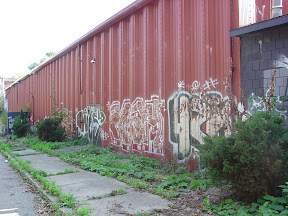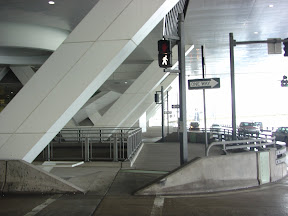Rental inspection touted as a key to blight control in city City Council members yesterday proposed regular inspections of all apartments and rental houses in the city.Putting new fees and new burdens onto those that invest in the city is a sure way to curb those investments. When the punishments come, along with the red tape, the investment money will flow elsewhere.
Furthermore, as a renter and resident, I don't want to have an inspector walking into my home. Privacy becomes a serious concern.
A building inspector might think my computer has an electrical short and seize it. Meanwhile, this computer is sending figurative darts into the heart of nanny state politicians like Len Boadack or tux buying Dan Deasy.
The state should not have invitations into anyone's home. Places should be off limits for government workers, without probable cause. Assessors shouldn't enter into homes either, and they don't.
If my downstairs neighbor has dripping water into his ceiling, then probable cause is present. But a standing invite on a regular basis sends red flags of worry.
Before I posted about the city's complete lack of responsibility for property that the city owns. After the city gets better control on its properties and once the residents are sure that public properties are kept in good condition -- then let's talk.
The city owns more than 10,000 household properties throughout the city. The city of Pittsburgh is, by far, the worst landlord east of the Mississippi.
 |
| City owned building, vacant, blight issued. Clean up your own house first. Album: playground - usa |
The new law is to make big government bigger. New inspectors are going to be hired. New payoffs get to be made.
The $1,000 per month fine for each unit is going to mean that hundreds of apartment buildings are going to be put up for sale when leases expire. This will make more empty buildings and additional blight.
Landlords should get billed for repeat inspections. However, the bill should be paid to the tennant and not to the city. The city wants to punish the landlords and that screws the tennant. That isn't the city's money. Damages should be paid to the ones that suffer, the tennant.
Another problem is the chilling effect with police calls. Pittsburgh faces a serious problem in that the citizens don't want to work with the police. The witness protection program leaves many out in the cold. Crowds of people won't identify shooters. The engagement among citizens and police is frail -- to sugar-coat the stituation. Now, with this new bill, a couple calls to the police is going to get you a bill. A charge.
What about someone with a protection from abuse order and a leaking sink.
We need to do everything we can to make the police accessible to those in need. A family on the run might need a safe place to sleeep even if the bathroom floor lacks that glow of see-yourself-shine. More hoops for landlords to jump through to make a rental just cripples freedom of those who need it the most.
Here is a better solution. Pitt, Duquesne and the other colleges should begin to worry and make proactive measures to protect its students. Who is the Pitt employed, off-campus, student housing coordinator and handy man resource?
Pitt should worry about its people.
Pitt's inaction has skunked up Oakland.
Pitt should be pulled into the middle of this problem, not Grant Street.
After the city gets its act in order, and after the universities get their acts in order with great housing options for its students, then let's talk about Section 8 housing -- then we might call upon landlords for a public hearing.
I look forward to this bill's public hearing being scheduled shortly.
By the way, send a building inspector to the Convention Center. I hear they have a hole in the floor.
 |
| From Convention Ce... |



2 comments:
Rental inspection touted as a key to blight control in city
Tuesday, February 06, 2007
By Rich Lord, Pittsburgh Post-Gazette
In another salvo in a battle against blight in Pittsburgh, two City Council members yesterday proposed regular inspections of all apartments and rental houses in the city.
Councilmen Dan Deasy and Len Bodack introduced legislation that would force landlords to pay between $5 and $30 per unit for inspections every two or three years. They also would have to pay an annual $25 per unit registration fee.
The councilmen said the city needs better control on rental properties to make sure they are kept in good condition.
The legislation would require that all rentals get a looking-over from a city building inspector or an approved inspection firm every two years, but Mr. Bodack said it may be amended to every three years.
A landlord who rents a unit that hasn't passed a code inspection could face a $1,000-a-month fine for each apartment that's in violation.
The legislation also would compel landlords to disclose the location, number of units and maximum number of tenants in each building, and contact information for the owner's agent and repair person.
In recent weeks, council members have proposed that landlords get billed for repeat inspections and police calls to their properties, and have joined with Mayor Luke Ravenstahl to introduce legislation demanding remediation plans for vacant buildings.
Councilman William Peduto proposed mandatory inspections of rental housing in student-heavy areas, and said yesterday that he may seek to merge his plan into Mr. Deasy's.
Mr. Deasy said he has met with landlords about his legislation, and will ask them to participate in an as-yet-unscheduled public hearing.
(Rich Lord can be reached at rlord@post-gazette.com or 412-263-1542. )
what a huge waste of time...how about cleaning up the URA first...
Post a Comment